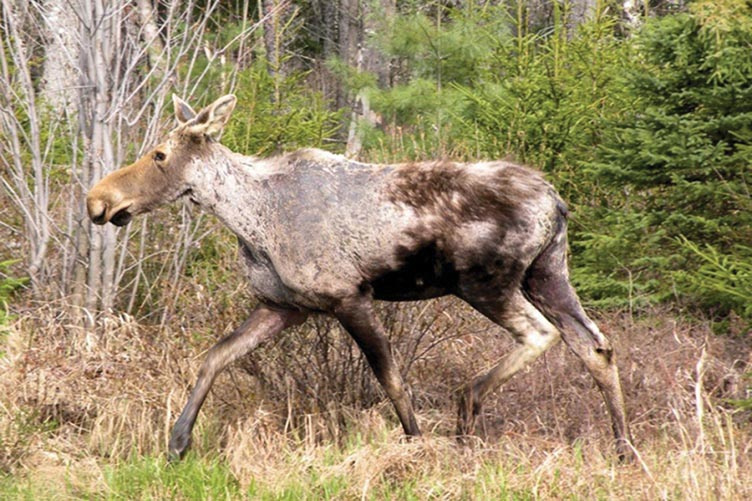
The winter tick — a tiny parasite thriving as winters warm and shorten — is decimating northern New England’s moose population, a three-year UNH study found. Published in the Canadian Journal of Zoology, the research, led by professor of wildlife ecology Pete Pekins, found that increasing infestations of this blood-sucking parasite are the primary cause of an unprecedented 70 percent death rate of calves over a three-year period.
Pekins and his research team, which includes UNH graduate students Henry Jones ’16G and Daniel Ellingwood ’24G as well as undergraduates, found an average of 47,000 winter ticks on 179 radio-marked moose calves in New Hampshire and western Maine from 2014 through 2016; 125 of those calves died. Most adult moose — some of them covered in nearly 100,000 ticks — survived but were thin and anemic from losing so much blood. The ticks also appear to be compromising the cows’ reproductive health.
The researchers blame the warmer and later- starting winters for giving winter ticks an advantage over the beasts many times their size. “The iconic moose,” Pekins says, “is rapidly becoming the new poster child for climate change in parts of the Northeast.”
-
Written By:
Beth Potier | UNH Marketing | beth.potier@unh.edu | 2-1566

















































